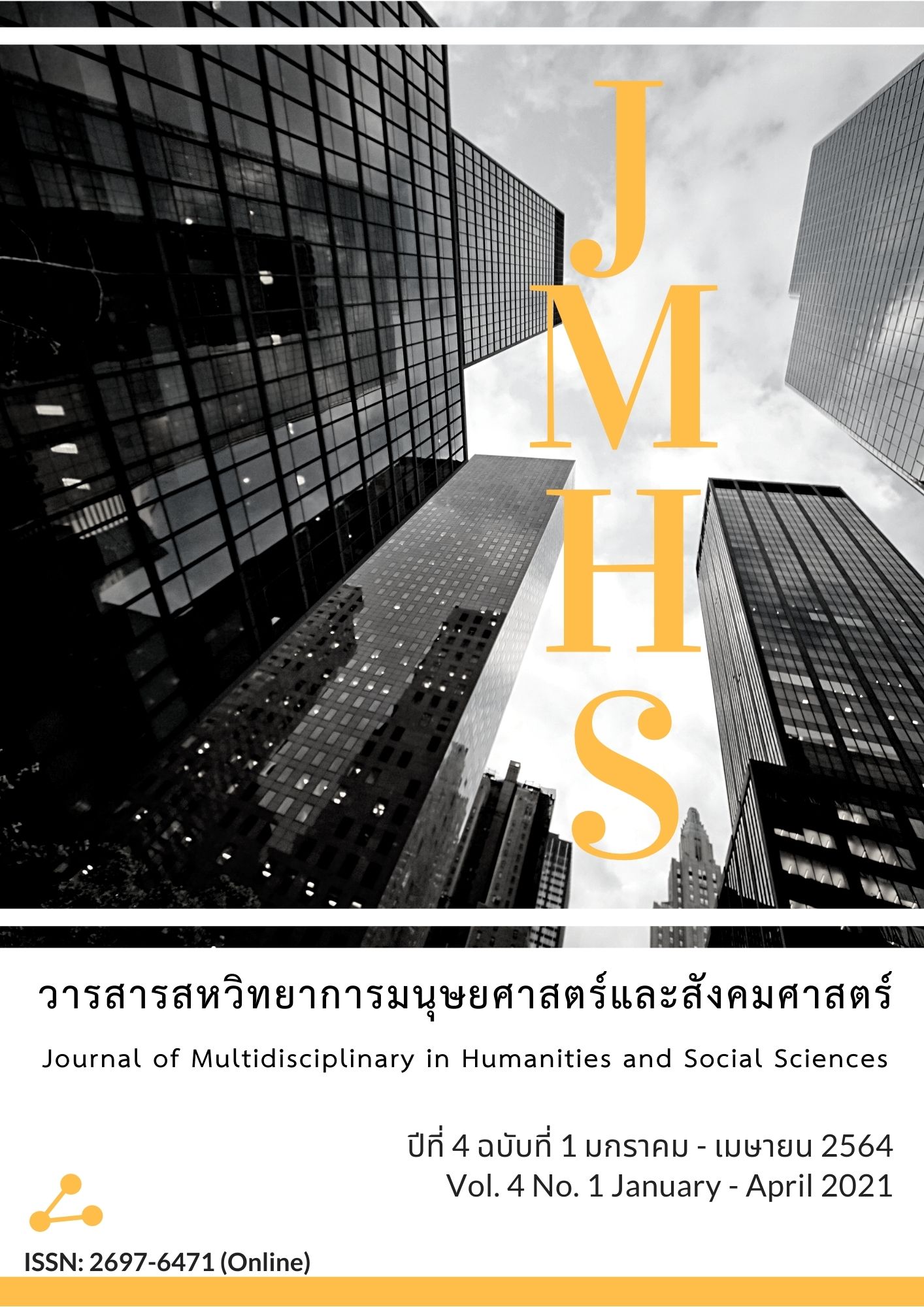An Analysis of Perfection of Charity (Danaparami) in Jataka Atthakatha
Main Article Content
Abstract
This article aimed to 1) investigate Dana (charity) in the Buddhist scripture, 2) study Dana-Parami in the Atthakatha Jataka Scripture and 3) analyze Dana-Parami in the Atthakatha Jataka Scripture through collecting data from the Tipitaka, Atthakatha, Tika, and scholar documents and introduced the data in descriptive presentation.
The results revealed that: 1) Dana (donation) in the Buddhist Scriptures stated that it was given and the primarily Dharmic principle in Buddhism and the adherent instrument of mutual goodwill. It was the benefaction for the high level of Dharmic practices unto Nibana.
2) The Dana-Parami (donations and perfections) in the Atthakatha Jataka Scripture disclosed that all the Buddhas in the past lives and antecedent to his lord enlightenment, his lord in the past life was the Phra Bodhisattva. The objectives of practicing Dana-Parami in the Atthakatha Jataka Scripture were that was when Phra Bodhisattva was predicted to be the lord Buddha; his lord’s routine duties (Buddha Karaka Dhamma) - the Dhamma to become the Buddha was demanded with 10 Parami (perfections) beginning from Dana-Parami and so on without desiring for other things besides Phra Sabbaññutañan or Bodhiñan and not expecting for any fortunes, entitlements, recognitions and happiness in the worldly Dharma.
3) The analyses on the Dana-Parami (donations and perfections) in the Atthakatha Jataka Scripture; (1) Dana (donation) was an element to reach Dhamma. It was comparative to a cornerstone to build a pagoda from the first brick to its top, (2) The Dana-Parami (donations and perfections) affected the livelihood because donation was the primary Dharmic principle in Buddhism and the adherent instrument for mutual goodwill, (3) The Dana-Parami (donations and perfections) perfectly affected the role model because it motivated other, and (4) The Dana-Parami (donations and perfections) affected a model leading to the Thai societal practices. Meaning, Dana (donation) the culture of the Thais was likely relying on Buddhism, which was an element of the indispensable culture. Rationally, Buddhism taught humans to do good in order to be the common action plan in societies which would bring happiness in the present and in future.
Article Details
Views and opinions appearing in the Journal it is the responsibility of the author of the article, and does not constitute the view and responsibility of the editorial team.
References
พระครูสมุห์วรวิทย์ ผาสุโก และ พระสุนทรกิจโกศล. (2562). ทุกข์และการดับทุกข์ในคัมภีร์อรรถกถาธรรมบท. วารสารมหาจุฬานาครทรรศน์, 6(9), 4166-4183.
พระพรหมคุณาภรณ์ (ป. อ. ปยุตฺโต). (2557). พจนานุกรมพุทธศาสตร์ ฉบับประมวลธรรม. (พิมพ์ครั้งที่ 27). กรุงเทพฯ: โรงพิมพ์มหาจุฬาลงกรณราชวิทยาลัย.
พระมหาโพธิวงศาจารย์ (ทองดี สุรเตโช). (2558). ธรรมสารเทศนา เล่ม 2. กรุงเทพฯ: ปัญญมิตรการพิมพ์.
พระมหาอานนท์ ชวนาภิภู (แสนแป้). (2548). การศึกษาเรื่องทานในพระไตรปิฎกที่มีอิทธิพลต่อสังคมไทย (วิทยานิพนธ์พุทธศาตรมหาบัณฑิต สาขาวิชาพระพุทธศาสนา). บัณฑิตวิทยาลัย, มหาวิทยาลัยมหาจุฬาลงกรณราชวิทยาลัย.
พระราชปริยัติกวี (สมจินต์ สมฺมาปญฺโญ). (2561). การศึกษาวิเคราะห์แก่นธรรมจากชาดก. วารสารมหาจุฬาวิชาการ, 5(2), 1-17.
มหาจุฬาลงกรณราชวิทยาลัย. (2539). พระไตรปิฎกภาษาไทย ฉบับภาษาบาลี และฉบับภาษาไทย. กรุงเทพฯ: โรงพิมพ์มหาจุฬาลงกรณราชวิทยาลัย.
สมเด็จพระญาณสังวร (เจริญ สุวัฑฒนมหาเถร) สมเด็จพระสังฆราช สกลมหาสังฆปรินายก. (2555). ทศบารมี ทศพิธราชธรรม. กรุงเทพฯ: โรงพิมพ์มหามกุฏราชวิทยาลัย.
สมเด็จพระพุทธโฆสาจารย์ (ป. อ. ปยุตฺโต). (2559). พจนานุกรมพุทธศาสน์ ฉบับประมวลศัพท์. (พิมพ์ครั้งที่ 30). กรุงเทพฯ: ผลิธัมม์.


